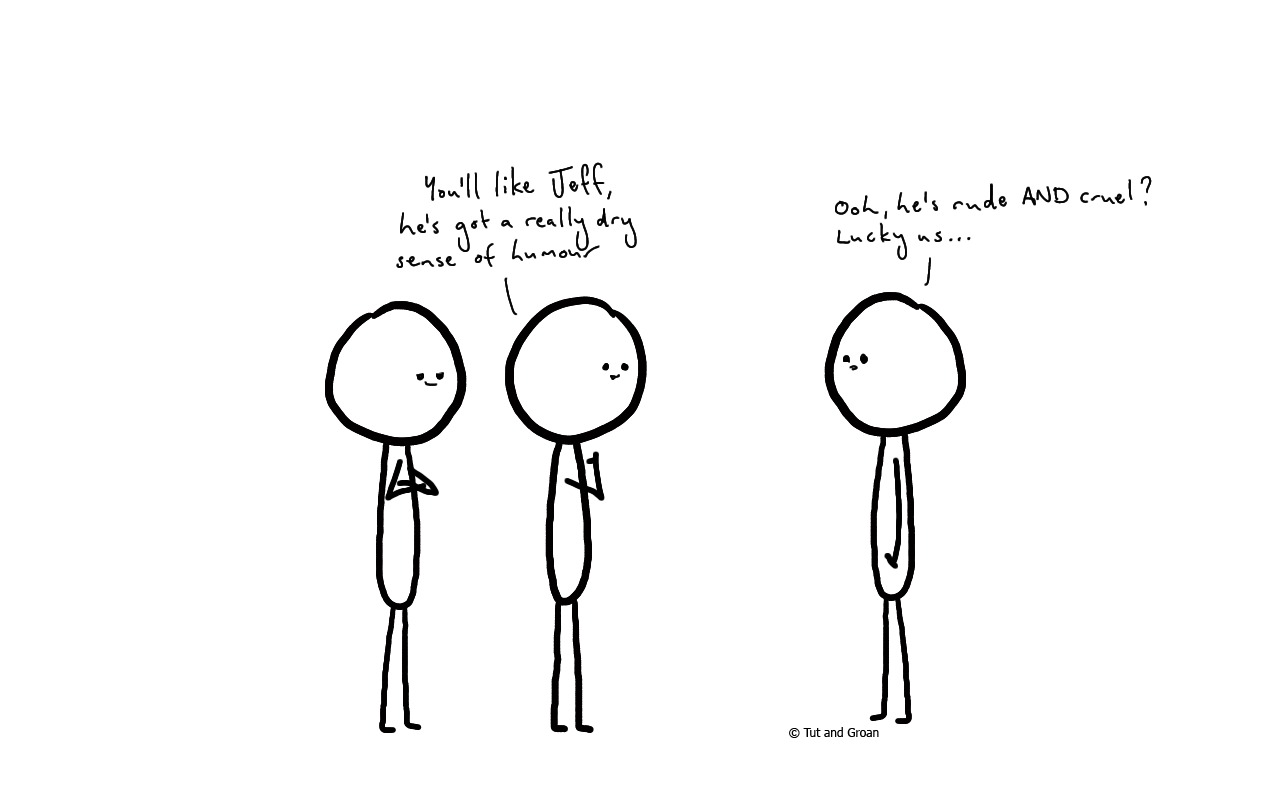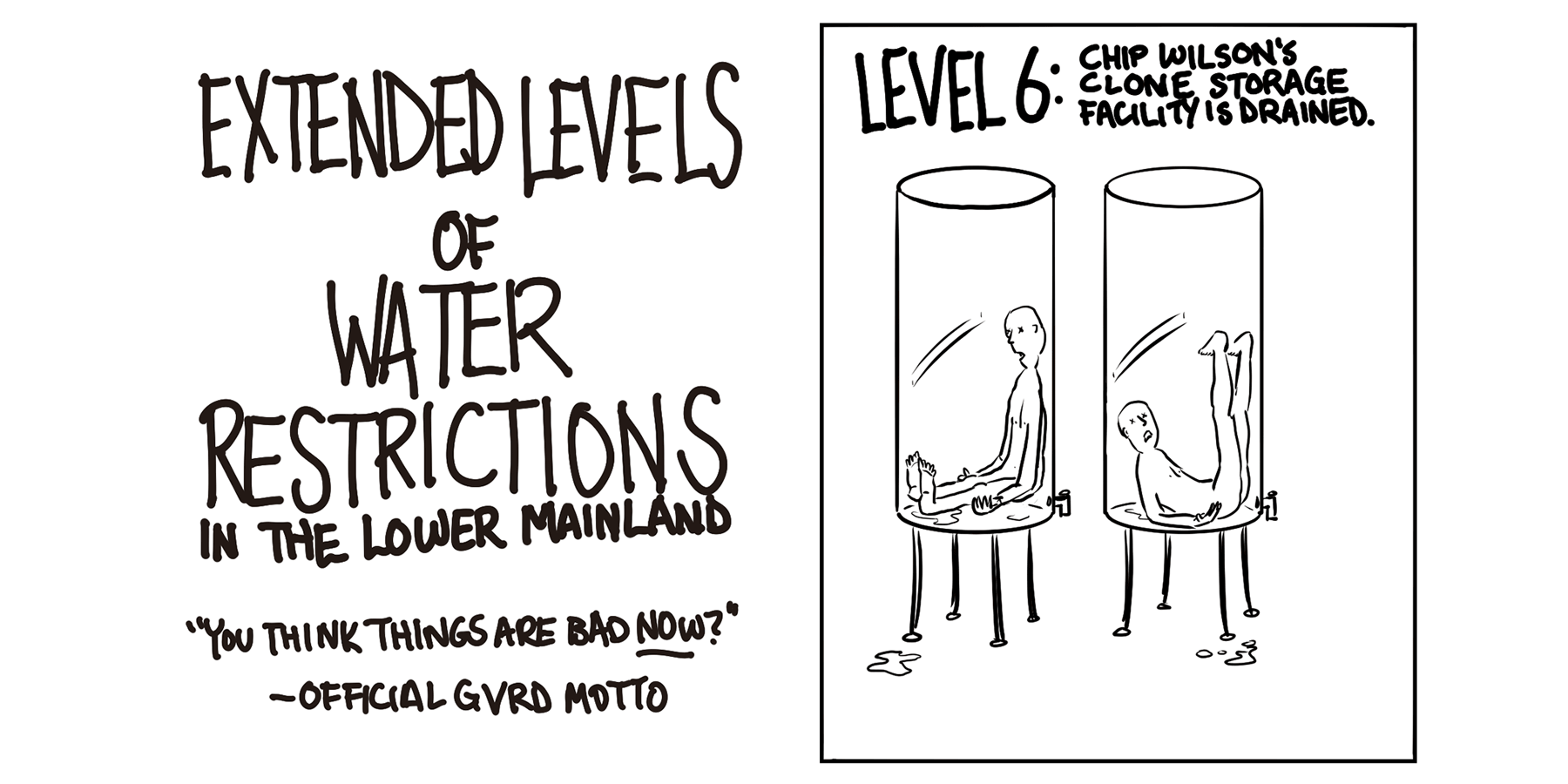What Is Meant By A Dry Sense Of Humour: The Ultimate Guide To Understanding This Witty Trait
Alright, let’s dive right in. You’ve probably heard someone describe a person as having a “dry sense of humour.” But what does that even mean? Is it like being parched in a desert, or is it more about cracking jokes that make you tilt your head like a confused dog? Well, buckle up because we’re about to unravel this quirky trait that’s both hilarious and oh-so-subtle.
Think of a dry sense of humour as the quiet guy at the party who doesn’t scream “YOLO” every five minutes but still manages to drop the funniest one-liners when you least expect it. It’s not in-your-face comedy; it’s more like a stealthy art form that sneaks up on you and leaves you wondering, “Wait… did they just make fun of me?”
Now, why should you care? Because understanding dry humour can help you navigate social situations better, recognize witty banter, and maybe even spice up your own joke game. Plus, it’s just plain cool to know what makes this type of humour tick. So grab your popcorn (or maybe a glass of water, since we’re talking dry), and let’s break it down.
Read also:Reggie Miller Net Worth The Journey Of A Basketball Legend
Before we dive into the nitty-gritty, here’s a quick roadmap of what we’ll cover:
- What Exactly is a Dry Sense of Humour?
- Characteristics of Dry Humour
- Examples of Dry Humour in Action
- Why Some People Love It, While Others Scratch Their Heads
- How to Develop Your Own Dry Sense of Humour
- Pop Culture Icons with Legendary Dry Humour
- The Psychology Behind Dry Humour
- When Dry Humour Works—and When It Doesn’t
- How to Respond to Someone with Dry Humour
- Wrapping It All Up: Why Dry Humour Rocks
What Exactly is a Dry Sense of Humour?
Let’s start with the basics. A dry sense of humour is essentially a style of comedy that relies on understatement, deadpan delivery, and a whole lot of sarcasm. Picture this: someone says something so serious that you’re not sure if they’re joking—until you realize they totally are. That’s dry humour in a nutshell.
It’s all about delivering jokes in a way that feels almost casual, like it’s no big deal. There’s no exaggerated laughter, no wild gestures, and definitely no slapstick antics. It’s the kind of humour that makes you pause, think for a second, and then burst out laughing because you finally got it.
But here’s the kicker: not everyone gets it. Dry humour can be a bit like an inside joke—if you’re not in the loop, it might just sail right over your head. And that’s part of its charm.
Characteristics of Dry Humour
Deadpan Delivery: The Signature Move
Deadpan delivery is the bread and butter of dry humour. It’s all about keeping a straight face while saying something completely ridiculous. Think of it as the anti-clown approach to comedy. No smiles, no winks, no nothing. Just pure, unadulterated seriousness that somehow makes everything funnier.
Sarcasm: The Secret Weapon
Sarcasm is another big player in the world of dry humour. It’s like taking a sarcastic comment and turning it up to 11. The key is to say the opposite of what you actually mean, but in such a way that it’s almost believable. For example, if someone spills coffee on their shirt and you say, “Wow, great job staying clean today,” you’ve just nailed dry sarcasm.
Read also:Kim Lees Net Worth The Untold Story Of South Koreas Wealthiest Woman
Understatement: Less is More
Understatement is the art of making something seem way less significant than it actually is. It’s like describing a hurricane as “a bit windy” or calling a traffic jam “a minor inconvenience.” When done right, it can be absolutely hilarious.
Examples of Dry Humour in Action
Still not sure what dry humour looks like? Let’s bring it to life with a few examples:
- Person A: “I just ran a marathon!” Person B: “That’s nice. Did you win?”
- Person A: “I’m going to the gym.” Person B: “Oh, are you going to lift the couch off the floor?”
- Person A: “I’m starving!” Person B: “Sure, but are you actually eating the table yet?”
See how these responses are delivered with a straight face and a hint of sarcasm? That’s dry humour in action.
Why Some People Love It, While Others Scratch Their Heads
It’s All About Context
Not everyone gets dry humour, and that’s okay. A lot of it comes down to context and cultural differences. What might be hilarious to one person could completely fly over another’s head. For example, British humour is often praised for its dry wit, but some people might find it a bit too subtle.
Personality Plays a Role
Some people are naturally drawn to dry humour because it aligns with their personality. If you’re someone who appreciates clever wordplay and subtle jokes, chances are you’ll love dry humour. On the flip side, if you prefer more straightforward comedy, dry humour might not be your cup of tea.
How to Develop Your Own Dry Sense of Humour
Start Small
Want to inject some dry humour into your life? Start by practising deadpan delivery. Try saying something completely absurd with a straight face and see how people react. It might feel awkward at first, but the more you do it, the more natural it’ll become.
Watch and Learn
One of the best ways to develop your dry humour skills is to watch comedians who excel at it. Think of people like John Cleese, Stephen Fry, or even Benedict Cumberbatch. Pay attention to how they deliver their lines and try to mimic their style.
Practice Sarcasm
Sarcasm is a great starting point for dry humour. Begin by exaggerating the opposite of what you mean, but keep your tone neutral. Over time, you’ll find your own rhythm and style.
Pop Culture Icons with Legendary Dry Humour
Monty Python: The Kings of Dry
Monty Python is pretty much the gold standard when it comes to dry humour. Their sketches are packed with clever wordplay, absurd situations, and a whole lot of deadpan delivery. If you haven’t seen their work, do yourself a favour and check it out.
Mr. Bean: Silent But Deadly
Rowan Atkinson’s character, Mr. Bean, is a masterclass in physical comedy with a dash of dry wit. He doesn’t say much, but his expressions and actions speak volumes. It’s a different kind of dry humour, but equally hilarious.
The Psychology Behind Dry Humour
Why Do We Find It Funny?
From a psychological standpoint, dry humour works because it challenges our expectations. When someone says something so serious that it seems out of place, our brains have to work a little harder to process it. And when we finally get the joke, it feels even more rewarding.
Is It Linked to Intelligence?
Some studies suggest that people who appreciate dry humour tend to have higher levels of intelligence. This makes sense when you think about it—understanding subtle jokes requires a certain level of cognitive flexibility. But hey, don’t worry if you’re not a brainiac; dry humour is for everyone!
When Dry Humour Works—and When It Doesn’t
Know Your Audience
Dry humour isn’t a one-size-fits-all solution. If you’re in a room full of people who prefer slapstick comedy, your deadpan jokes might fall flat. The key is to know your audience and tailor your humour accordingly.
Timing is Everything
Even the best dry jokes can bomb if the timing is off. Make sure you’re delivering your lines at the right moment, and don’t be afraid to let the silence hang for a second or two. Sometimes, the anticipation makes the punchline even funnier.
How to Respond to Someone with Dry Humour
Play Along
If someone hits you with a dry joke, the best response is to play along. Keep the conversation going by responding in kind. For example, if they say, “I’m so tired I could sleep for a week,” you could reply, “Well, I hope you’ve got a good alarm clock.”
Don’t Overthink It
One of the biggest mistakes people make when responding to dry humour is overthinking it. Just go with the flow and trust that you’ll eventually get the joke. Overanalyzing can ruin the magic.
Wrapping It All Up: Why Dry Humour Rocks
So there you have it—a deep dive into the world of dry humour. Whether you’re a seasoned dry humour enthusiast or just dipping your toes in the water, there’s no denying its appeal. It’s clever, subtle, and oh-so-satisfying when done right.
Now that you know what dry humour is all about, it’s time to put your newfound knowledge into action. Try incorporating some dry jokes into your conversations, and see how people respond. Who knows? You might just become the next big thing in the world of comedy.
And remember, if you ever find yourself scratching your head over someone’s dry humour, don’t worry—you’re not alone. Sometimes, the best jokes are the ones that take a little time to sink in. So keep laughing, keep learning, and most importantly, keep it dry!
Got any favourite dry humour examples or stories? Drop them in the comments below, and let’s keep the conversation going. Until next time, stay witty and stay hydrated (even if your humour is dry).


